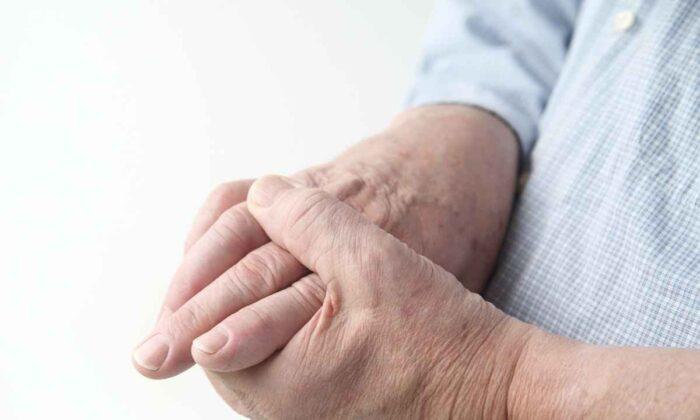John is a web designer who uses a mouse and keyboard for long hours daily. Lately, he has been experiencing numbness and tingling in his left index and middle fingers. John has attempted to alleviate his symptoms by adjusting his work posture and doing hand exercises—but to no avail.
What could be the potential cause of John’s condition, and what health implications can hand numbness indicate?
Every adverse symptom of the body can be seen as a messenger—rather than a foe. The body exhibits symptoms to signal that health issues require attention or treatment. By blindly using medication to mask symptoms or hastily opting for surgery when there are options for treating the underlying health issues, we may fall into the trap of modern medical industrialization.
Possible Causes of Numbness in Hands
Hand numbness is common and short-term. Occasional symptoms may not require excessive concern. Those are usually caused by improper sleeping or sitting posture, poor hand positioning, or stress and anxiety and can be improved simply by changing positions, getting enough rest, and adjusting one’s mindset.However, persistent hand numbness after taking the abovementioned measures may indicate complex underlying causes. In his work as a web designer, John is a case in point. He switched to a keyboard with a more wrist-protective design. He took regular breaks during work, but his hand numbness symptoms did not improve and worsened over time.
There are two possible underlying causes of severe hand numbness. One probable cause is a pinched nerve, leading to pain or numbness. It may be accompanied by other symptoms such as muscle weakness or loss of overall balance.
Diagnosis and Treatment Methods for Hand Numbness
Hand numbness caused by structural issues can be diagnosed using medical imaging. X-rays can detect abnormal conditions in the wrist and finger bones and determine if there is any nerve or vascular compression in the hand.Computerized tomography, or “CT scans” and magnetic resonance imaging ( MRI), can reveal detailed information on bones, soft tissues, nerves, and blood vessels and identify problems such as nerve damage or vascular abnormalities. In addition, ultrasound can help detect issues such as vascular stenosis or nerve compression.
Traditional Chinese Medicine Treatment for Hand Numbness
So, how does traditional Chinese medicine (TCM) view hand numbness? According to TCM, hand numbness is caused by factors such as stagnation of qi (vital energy), blood stasis, and dampness, leading to meridian blockages. Internal organ issues, such as liver blood deficiency or liver and kidney yin deficiency, may also cause it.Diagnostic Results of John’s Condition
John’s diagnostic results indicated carpal tunnel syndrome in his left hand. This common neuropathic condition often causes numbness or tingling in the palm, fingers, and forearm. Carpal tunnel syndrome typically occurs in individuals who use their hands or wrists repeatedly for extended periods, such as office workers. Additionally, pregnant women may develop carpal tunnel syndrome due to hormonal changes.Based on the diagnostic results, the doctor advised John to reduce the use of his hands and wrists, adjust his work and rest posture, and perform wrist stretching exercises regularly. The doctor also fitted John with a wrist brace to reduce wrist pressure and alleviate pain. John followed the doctor’s treatment recommendations, tried acupuncture, and experienced some relief from his symptoms.
It is worth noting that diagnosing carpal tunnel syndrome does not necessarily mean that John is free from other issues related to biochemistry, energy, psychology, or emotional stress. Treating only the structural problem may not be practical or provide long-lasting relief if underlying issues are not addressed.
Therefore, we should adopt the “four dimensions of health” concept and manage our bodies comprehensively from four aspects: body structure, biochemistry, energy, and soul. In addition to the treatment plan recommended by the doctor, John should also pay attention to his lifestyle and emotional well-being to achieve better overall results.






